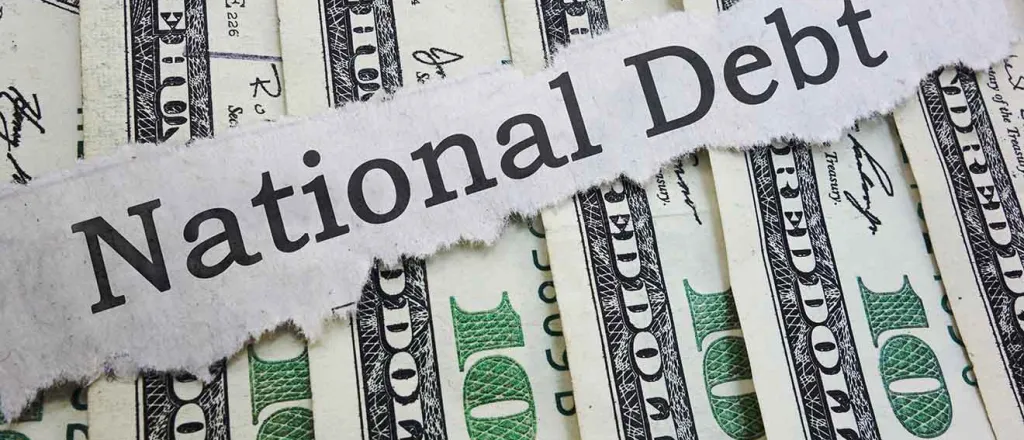
Rating agency puts U.S. on negative watch over partisanship in debt talks
(The Center Square) – Fitch Ratings put the United States' credit rating on notice after talks in Washington failed to reach a deal to raise the nation's debt ceiling.
Fitch said that the nation's AAA Long-Term Foreign-Currency Issuer Default Rating was on "Rating Watch Negative."
"The Rating Watch Negative reflects increased political partisanship that is hindering reaching a resolution to raise or suspend the debt limit despite the fast-approaching x date," according to the Fitch report. "Fitch still expects a resolution to the debt limit before the x-date. However, we believe risks have risen that the debt limit will not be raised or suspended before the x-date and consequently that the government could begin to miss payments on some of its obligations."
It added: "The brinkmanship over the debt ceiling, failure of the U.S. authorities to meaningfully tackle medium-term fiscal challenges that will lead to rising budget deficits and a growing debt burden signal downside risks to U.S. creditworthiness."
President Joe Biden and U.S. House Speaker Kevin McCarthy have been in talks to raise the debt ceiling, the maximum amount of debt the U.S. Department of the Treasury can issue.
McCarthy and Republicans want federal spending cuts, to cap future spending, to claw back unspent COVID-19 relief funds and work requirements for social programs. McCarthy has said he won't accept new taxes or defense cuts. Biden has said any deal must be bipartisan.
U.S. Treasury Secretary Janet Yellen has said lawmakers must raise the debt ceiling by June 1 or risk a default on U.S. debt obligations, but that deadline is an estimate. When exactly the U.S. will run out of money remains uncertain. Whatever the date, Fitch said it was concerned. A default could put the nation's AAA credit rating at risk.
"The failure to reach a deal to raise or suspend the debt limit by the x-date would be a negative signal of the broader governance and willingness of the U.S. to honor its obligations in a timely fashion, which would be unlikely to be consistent with a 'AAA' rating, in Fitch's view," according to the report.
Fitch also said gimmicks or "avoiding default by non-conventional means such as minting a trillion-dollar coin or invoking the 14th amendment is unlikely to be consistent with a 'AAA' rating and could also be subject to legal challenges."
Along with debt ceiling brinkmanship, Fitch cited the country's governance challenges, weaker-than-expected tax receipts and higher interest rates and its "high and rising public debt burden." Fitch noted that U.S. government debt fell to 112.5 percent of the nation's gross domestic product at the end of 2022. The median for AAA-rated nations is 36.1 percent. Fitch further expects debt to increase to 117 percent by the end of 2024.
The agency noted that U.S. remains in a strong position financially.
"The size of the country's economy, high GDP per capita and dynamic business environment support the U.S. ratings," it said. "The U.S. dollar is the world's preeminent reserve currency, which gives the government extraordinary financing flexibility."
House Republicans passed a bill to reduce spending by $4.8 trillion and increase the debt limit by about $1.5 trillion, or until March 31, 2024, whichever comes first. The Republican bill would strip energy and environmental tax credits from the Inflation Reduction Act and formally block Biden’s student loan cancellation. It also would put work requirements in place for some federal social programs, such as requiring Medicaid recipients to work 80 hours per month.
The Limit, Save, Grow Act would return total discretionary spending to the fiscal year 2022 level in fiscal year 2024 and cap annual growth at 1 percent for 10 years, according to the Committee for a Responsible Federal Budget. The Congressional Budget Office has estimated that the measure would reduce budget deficits "by about $4.8 trillion over the 2023–2033 period."

















